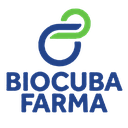Executive Secretary

VIII Simposio Internacional de Química y Ciencias Farmacéuticas
VIII Conferencia "Ciencias Químicas"
Resumen
El compuesto de 2-fenil-1H-benzimidazol se sintetizó mediante el método convencional, que implica la reacción entre benzaldehído y o-fenilendiamina en un disolvente de acetonitrilo. La purificación se logró mediante una purga de N2 (g) a 180°C durante 10 horas. La estructura cristalina de la molécula se determinó a partir del análisis de difracción de rayos X en polvo, con la estrategia de optimización global del espacio directo, seguido del refinamiento de Rietveld. El 2-fenil-1H-benzimidazol cristaliza en el sistema monoclínico con el grupo espacial C2/c y los parámetros de la red son: a=17.5 Å, b=13.8 Å y c=104.9 Å. La estructura conformacional adoptada por esta molécula dentro de la red tridimensional exhibe interacciones de enlaces de hidrógeno intermoleculares Na-Ha---Nb.
Para dilucidar la naturaleza de las interacciones de enlaces de hidrógeno inter e intramoleculares, se compararon los espectros infrarrojo (FT-IR) y Raman obtenidos con los modos de vibración calculados tanto de la molécula libre como el cristal. Los modos de vibración calculados se obtuvieron mediante la teoría funcional de la densidad (DFT). En combinación con IR, la espectroscopia Raman y los cálculos DFT confirmaron la presencia de modos de vibración característicos específicos del benzimidazol.
Agradecimientos: Agradecemos el apoyo del PREI-DGAPA por el profesor invitado a MPHS y la generosa asignación de tiempo de computación en el CCC-UAM. Este trabajo contó con el apoyo parcial del proyecto PID2019-1 del MICINN (Ministerio de Ciencia e Innovación de España) y del proyecto PN223LH010-011 del
Programa Nacional de Ciencias Básicas y Naturales (PNCByN)
Abstract
The 2-phenyl-1H-benzimidazole compound was synthesized through the conventional method, involving the reaction between benzaldehyde and o-phenylenediamine in an acetonitrile solvent. Purification was achieved via a purge of N2 (g) at 180°C for 10 hours. The crystalline structure of the molecule was determined using X-ray powder diffraction analysis. The optimization of the crystal structure was performed through a direct space global optimization strategy called simulated annealing, followed by Rietveld refinement; evidencing that 2-phenyl-1H-benzimidazole crystallizes in the monoclinic system with space group C2/c and the crystal lattice parameters is a= 17.5 Å, b= 13.8 Å and c= 104.9 Å. The conformational structure adopted by this molecule within the three-dimensional network exhibits intermolecular hydrogen bonding interactions Na-Ha---Nb.
To elucidate the nature of inter and intramolecular hydrogen bonding interactions, the obtained infrared (FT-IR) and Raman spectra of the 2-phenyl-1H-benzimidazole were compared with the calculated vibrational modes of both the free molecule and the crystal structure. The calculated vibrational modes were obtained through density functional theory (DFT) calculations. In combination with IR, Raman spectroscopy and the DFT calculations confirmed the presence of characteristic vibrational modes specific to benzimidazole.
Acknowledgments: We would like to thank the support of PREI-DGAPA for theinvited professor to MPHS and the generous allocation of computer time at the CCC-UAM. This work was partially supported MICINN (Spanish Ministry of Science and Innovation) project PID2019-1 and project PN223LH010-011 of the
National Program of the Basic and Naturals Science (PNCByN)
Sobre el ponente

Daimí González Caballero

Discussion




